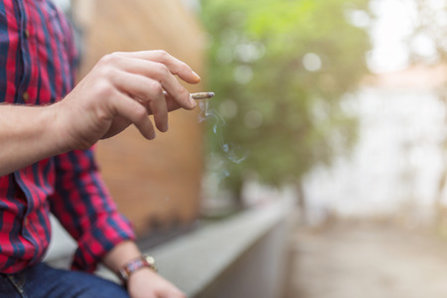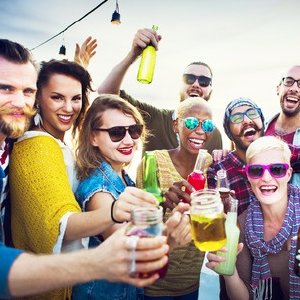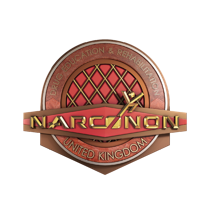What Are Gateway Drugs?

The topic of gateway drugs comes up regularly, as does the question ‘What are gateway drugs?’ particularly when looking at the road that leads to drug abuse and addiction. The basic concept is that using some lighter drugs, increases the possibility of a person moving onto stronger substances.
These drugs are generally considered to be nicotine, alcohol and marijuana, though with current circumstances, we may see painkillers being added to this list. The key reasons are that they are relatively cheap, easy to obtain, and are generally socially acceptable, two of the three are also legal.
The trick with these drugs is though the damage that they cause to both the mind and body are well documented, the social view is that they are relatively harmless and therefore acceptable.
Is Stopping Really so Easy?
We have never come across an addict that started out with the intention of becoming an addict, each new user is usually just curious and thinks that they can handle the drug, and stop at any time.
The journey from a gateway drug to harder substances is usually gradual, with one thing just leading to another. Granted that not all users of alcohol, marijuana or nicotine end up moving onto harder drugs but the possibility is always there, and the likelihood of it occurring increases as a person develops a tolerance for and/or dependence on the gateway drug.
These gateway drugs are sometimes touted as harmless, natural, or non-addictive and because of this, using these gateway drugs can become normal, and once it is normal it is easy to lose track of just how much one is consuming each day. At that point a tolerance can build up, as can a dependency, and the person loses rational judgement about drug use.
The Gateway of Tolerance and Dependence
The gateway really comes into play when someone uses a substance frequently and develops a higher and higher tolerance for it. A user will keep trying to take more and more of the substance in order to try and experience the original effect. Most people will have experienced this with alcohol, as you drink more, the more you can drink without feeling drunk.
This tolerance is not addiction, the next step is dependence. This is when a person ‘needs’ the drug regularly in order to feel ‘normal.’ Cigarette smokers experience this regularly, so do coffee drinkers. Without another coffee or cigarette often headaches, irritability or stress can be experienced.
So now you see the step of using these gateway drugs occasionally, to their use feeling totally normal or beneficial. This dependency can lead to addiction and then onto more powerful drugs.
Here is an example, using alcohol to demonstrate how the cycle can go: It starts off with some drinks on big nights out, then it becomes part of all social gatherings, then some drinks with meals, then some drinks to unwind, then before the person has noticed, it’s daily to unwind, de-stress or socialise. At some point this can get to many drinks every day, it is a refuge, and now that judgement is so impaired, the temptation to try other drugs is increased.

Keeping it in Perspective
The good news is that using a gateway drug does not guarantee that someone will become an addict or move onto harder drugs; but if you or someone you know does seem to be heading in that direction, it is very important to act fast, the earlier that help can be gotten the less likely the person will be totally immersed in a drug world, life will have been less affected and it is easier to get the person through rehabilitation and back onto life the right side of gateways drugs.
For more information on drugs, or our rehabilitation programme contact us.

